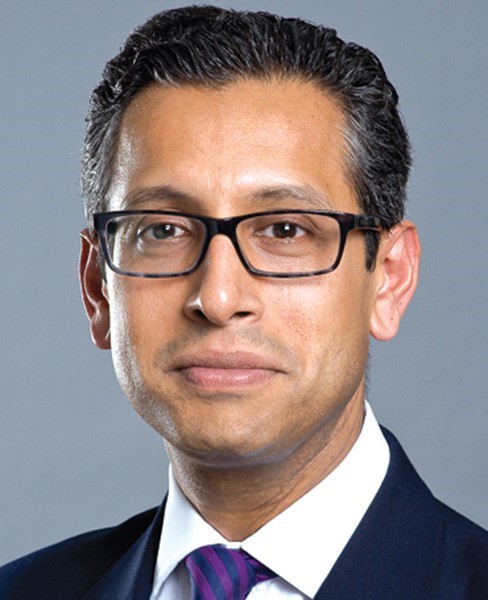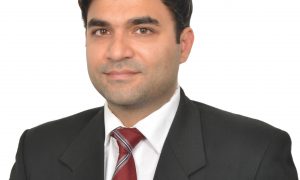This Interview has been published by Pragya Chandni and The SuperLawyer Team

Sir, could you please share with us a bit about your journey into the field of international commercial arbitration and litigation? What initially drew you to this area of law?
I did my two year training contract between 1991-1993 at the London office of a law firm then called Denton Hall Burgin & Warrens, and, as was customary, did 4 seats each of 6 months duration. My seat in the dispute resolution group led by a partner called Bob Goldspink opened my eyes to the world of international commercial arbitration and litigation. Although Bob is now long retired, he was a great mentor to me and remains one of the biggest influences in my career. Bob made the practice area fun and dynamic, and I thoroughly enjoyed the challenge of solving commercial problems through the analysis of the facts and application of the law, the close interaction with clients, the global nature of the disputes, considering the best strategies to adopt and thinking about how our opponents might act. When I qualified as a solicitor in 1993, I became an associate in Bob’s team and continued to learn from him through working on a broad mix of arbitrations and litigations. He also gave me a lot of responsibility and independence from the outset.
You’ve had an extensive career with Reed Smith, including serving on the global board and executive committee. Can you highlight a few key milestones or cases that have been particularly significant in shaping your career?
My time at Denton Hall Burgin & Warrens from 1991-1997 will always be special as that was the first law firm I worked at and we should never forget where we all started. Apart from Bob Goldspink, I shall always be indebted to two other partners there; Virginia Glastonbury, who interviewed me for a training contract in 1989 and believed in me, and Bill Anderson, another disputes partner, who taught me how to really think through issues.
Shortly after I joined Reed Smith in 1997, I became the lead associate on a major litigation acting for the BBC in defending the arrangements it had entered into with the Premier League to acquire the exclusive rights to broadcast highlights of English Premier League football matches on its flagship Match of the Day programme. The BBC was ultimately successful in that litigation following a trial in 1999. Not only was that a fascinating and high profile case to work on, but it also enabled me to work very closely with Sarah Jones, then the BBC’s head of litigation, and who for many years now has been the BBC’s General Counsel. Sarah is both a formidable lawyer and wonderful person, and remains one of my very best friends in the law. Since that Premier League football case, I have been very fortunate to advise the BBC and its group entities on many significant matters, right through to the present day.
In the course of my now almost 27 years at Reed Smith, I have also been very fortunate to have worked with many colleagues on arbitrations and litigations involving clients and disputes all round the globe including India, Africa, the US, the Middle East, Singapore and SouthEast Asia, Mongolia, Kazakhstan and South America, amongst others. Those matters have all been great learning experiences, and have involved a wide range of industry and business sectors. The ability to work with clients and lawyers in those jurisdictions has been a real privilege as has being able to travel to so many countries as part of those cases. I genuinely did not think that I would visit so many countries when I was growing up in London. It has also been uplifting to see several lawyers who have worked with me on those cases achieve promotion at Reed Smith; a number are now my partners and a number have moved to prominent in-house roles. The success of each of my mentees has been a key milestone.
I shall always be thankful for being made a partner at Reed Smith in 2000, being asked to serve as the founding managing partner of Reed Smith’s Singapore office and being based in Singapore from 2012-2015, and for being a member of Reed Smith’s global board, its Executive Committee, from 2017-2023.
Looking at the list of representative matters, you’ve represented clients in a wide range of industries and jurisdictions. How do you navigate the unique challenges presented by different sectors and legal systems?
The variety is stimulating and, as every case is different, each is always a great learning experience. There is inevitably a core skill set which all disputes lawyers need to have, but being able to adapt, take things in stages, and think flexibly is important. There is also never a monopoly on wisdom, and everyone on the case team has an essential and valuable role to play. Working in a wide range of industries has given my colleagues and I the ability to interact closely with a broad spectrum of clients and form several long-lasting relationships. Almost invariably the external legal team and the client team become a seamless unit, looking out for each other and working towards common goals. Working on matters involving lawyers in other jurisdictions, apart from my home jurisdiction of England and Wales, is a fabulous way to expand our minds and to think even more broadly. When you also throw expert witnesses into the mix, that adds to things even further. We all learn a lot from each other, work symbiotically and continually appreciate that there are different ways to approach issues. That sums up what it means to be involved in international litigations and arbitrations.
How has your experience as an educator informed your approach to complex legal matters, and do you see any intersections between teaching and practicing law?
A phrase I read many years ago is that the legal profession graces lawyers, and lawyers do not grace the legal profession. It is therefore important to give back and to share knowledge, experience and expertise. I have always enjoyed giving talks on legal topics, speaking at conferences, teaching occasional classes, writing articles and contributing to legal publications. None of us stops learning. The law is dynamic and constantly evolving, and being as up-to-date as possible is essential. Being close to the core legal principles, practical developments, different viewpoints from commentators and possible areas for reform are essential to make the most of practising the law. Clients also expect us to not only have excellent judgment but to always be on top of legal learning, and so there is no substitute for that.
Balancing responsibilities as a former managing partner of Reed Smith’s Singapore office and chair of the India Business Team must have been challenging. How do you balance leadership roles with your legal practice?
With the support of incredible colleagues. Doing what we do is all about teamwork and supporting each other. It is rightly expected that senior lawyers should give back to their firms in a tangible and meaningful way through leadership roles, but no one can do everything. I am very fortunate to have so many amazing colleagues with whom I have worked closely over the years, and with whom I continue to work, who have enabled me to do what I do.
You’ve received numerous honors and awards, including being ranked in Chambers UK and listed as a ‘Leading Individual’ in The Legal 500. How do such recognitions impact your approach to your work, if at all?
Any recognitions are of course hugely appreciated but they truly primarily reflect on my colleagues with whom I work. It is also a broad team – my executive assistant, paralegals, trainee solicitors, associates, of counsel, and other partners. As a mentor, the objective should not be to have my mentees equal me but instead for them to surpass me.
Coming towards the end of this conversation, what advice would you give to law students or fresh graduates who are considering a career in international commercial arbitration and litigation?
Do it. Go for it. International commercial arbitration and litigation is an incredible practice area. Working on the resolution of major global disputes and advising clients, be it through arbitration, litigation or mediation or other types of proceedings, in a mix of industry sectors, will stimulate, challenge and test you, but it will in equal measure bring great satisfaction, sharpen your legal skill set and continuously broaden your learning.
Get in touch with Gautam Bhattacharyya-

























